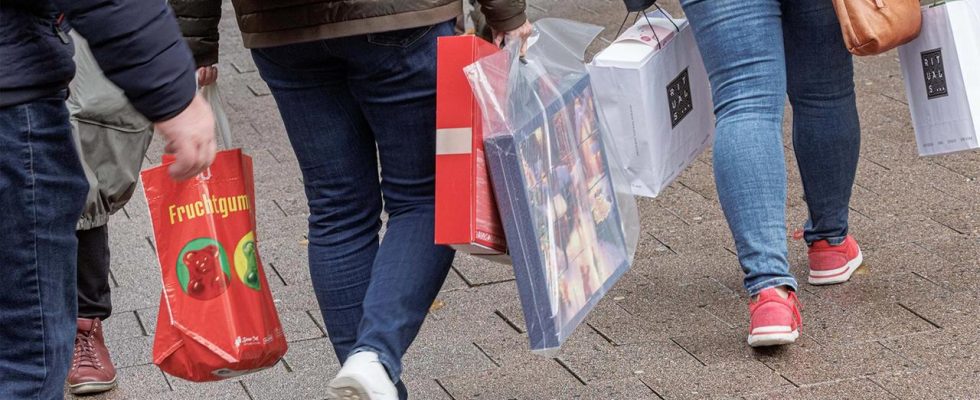Germany’s consumers react with uncertainty to geopolitical crises and persistently high inflation. The GfK consumer climate is surprisingly falling and the propensity to save is rising sharply.
The mood of consumers in Germany has deteriorated more in the new year than it last did in March 2023. The barometer for the consumer climate in February surprisingly fell by 4.3 to minus 29.7 points, said GfK and the Nuremberg Institute for Market Decisions ( NIM) today. A worse value was last measured in March 2023 with minus 30.6 points.
The researchers predict consumer mood for the following month from a survey of around 2,000 consumers. However, economists surveyed by the Reuters news agency had expected a slight improvement in consumer sentiment.
Intermediate high at Christmas
The year 2024 is starting very disappointingly and with a bitter setback for consumer sentiment in Germany, according to the statement. People are more skeptical about the economy and their future finances and are less willing to make large purchases. In addition, the propensity to save is at its highest level since August 2008.
With these results, hopes for a sustainable recovery in the consumer climate must be postponed further into the future, say the experts. “Crises and wars as well as persistently high inflation unsettle consumers and thus prevent an improvement in consumer sentiment.”
“The improvement in the previous month was apparently just a brief flare-up before Christmas,” said NIM consumer expert Rolf Bürkl. “If there were any hopes that sentiment could sustainably recover, they were dashed in January.”
“Low planning security”
The barometer for income expectations fell to its lowest value since March 2023. According to experts, one reason for this is likely to be that inflation climbed from 3.2 to 3.7 percent in December. This also curbed the willingness to buy larger items such as cars, furniture or refrigerators.
“Concerns about continued high prices for food and energy reduce planning security, which is particularly necessary for larger purchases,” explained the market researchers. “And if more money has to be spent on everyday goods, many people lack the financial resources for other purchases, such as furnishings or electronic devices.”
Bad Economic outlook
At the beginning of the year, those surveyed were also more pessimistic about the economic prospects for the next twelve months. This sub-index slipped to its lowest value since December 2022. The German economy shrank by 0.3 percent in the final quarter of 2023 and in the year as a whole.
Yesterday the ifo Institute lowered its growth forecast for the current year from 0.9 to 0.7 percent. Some economists are much more pessimistic than the ifo Institute. The trade union-affiliated Institute for Macroeconomics and Economic Research (IMK) expects a further contraction of 0.3 percent this year. “The recession is stubborn, there is still a lot of uncertainty among companies and consumers,” said Ulrich Reuter, the new president of the German Savings Banks and Giro Association (DSGV).

